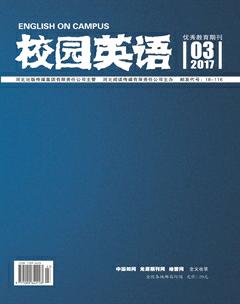Conflicts and Reconciliation in “The Man That Corrupted Hadleyburg”
陈滢宇
【Abstract】To say that “The Man That Corrupted Hadleyburg” is one of Twains finest and most significant works would probably provoke little argument. However, there are few independent studies of this story, and where it is considered in general studies of Twains art, it is unusually given little more than passing attention as a cynical and pessimistic story on human nature reflecting the deepening despair of his later years. However, this paper intends to explore conflicts between abstract moral values and empirical moral values, conscience and heart, also the method to reconciliate these conflicts.
【Key words】honesty; conscience; experience
I. Honesty in Training VS. Honesty in Practice
Some critics have examined Twains scheme of biblical typology in the story and have identified the mysterious stranger as Satan who enters the ironic Eden of Hadleyburg to tempt Edward and Mary Richards, the “pathetic middle-aged Adam and Eve” to sin. The stranger seems to be a vicious man, a Satan who wants to make the downfall of Hadleyburg. Human nature has the potential to be petty and selfish as well as noble and kind. Thus the town becomes obsessed with vanity over its empty and now unearned reputation, its preoccupation with preserving that reputation by excluding the temptations to dishonesty not only fails but also leaves other vices free to develop unchecked.
II. onscience VS. Individual Heart
As Twain points out in the contemporaneous “What Is Man?”, “Corn-Pone Opinions” and “The United States of Lyncherdom”: ‘the Sole Impulse which dictates and compels a mans every act: the imperious necessity of securing his own approval, in every emergency and at all costs usually involves not only the disposition to do whatever will gain public approval but also “mans commonest weakness, his aversion to being unpleasantly conspicuous, pointed at, shunned, as being on the unpopular side.” The town meeting reveals the dishonesty of the rest of the Nineteen, but for the Richardses it means only more temptation and further conflict between the values of their consciences and their passion for public favor. There is not an individual Edward or Mary, since they always live under the vain and reputation of the honest Hadleyburg.
III. Experience—The Strangers Machination
Experience has made Richardss conscience a highly complex faculty in which moral perception, direction and the motivating emotion of self-approval work together to produce real honesty—honesty which is not simply allegiance to an abstract principle, but honesty expressed in practice against the temptations of dishonesty. We can conclude that conscience is a complex thing, not only oral, institutionalized, conceptual but practical and empirical.
IV. Conclusion
The story is in fact less pessimistic than soberly optimistic; it ends not with the greed, hypocrisy and cynicism of the town meeting, but with the development of a significant conscience in Richaeds and in the affirmation of Hadleyburgs new motto: Lead Us To Temptation. The motto is not an invitation to sin, but a means to grapple with it empirically.“It is an honest town once more, and the man will have to rise early that catches it napping again.”(p.241)
Notes:
[1]Rule.“The Role of Satan in‘The Man that Corrupted Hadleyburg.”Studies in Short Fiction,6(1969),619-629; Werge.“Mark Twain and the Fall of Adam.” Mark Twain Journal,15,ii (1970),5-13; Nebeker,“The Great Corrupter or Satan Rehabilitated” Studies in Short Fiction,8 (1971),p.635-637.
[2]Twain,Mark.“What Is Man?and Other Essays.”New York, 1917,p.29.
[3]Twain,Mark.“Europe and Elsewhere.”New York,1923,p.243.
[4]S.Burhans,Clinton.,Jr.“The Sober Affirmation of Mark Twains Hadleyburg.”American Literature,34(November 1962),p.383.
References:
[1]Twain,Mark.“A Collection of Marktwains Short Stories.” English edition.Translated by Dong Qiang.Shaghai:Shanghai Sanlian bookstore.Jan.2001.

